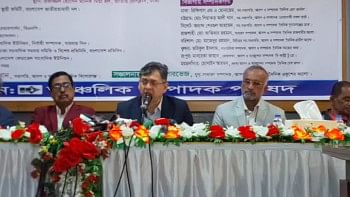Post-LDC Challenges: WB to equip Bangladesh

Equipping Bangladesh to face the challenges of graduation from the least-developed country bracket is the main agenda for the World Bank Group as it embarks on its next 50 years of partnership.
The plan has been outlined in the multilateral lender's country partnership framework for 2023-2027, which will be presented before Prime Minister Sheikh Hasina today at a daylong event at the WB headquarters in Washington DC to celebrate 50 years of partnership with Bangladesh.
"The relationship had its ups and downs but the WB stuck to its mandate of being a partner in development," said Zahid Hussain, a former lead economist of the WB's Dhaka office.
The trough in the relationship came in June 2012, when the WB pulled out its $1.2 billion funding to build the Padma bridge after it found "credible evidence corroborated by a variety of sources" that pointed to a high-level corruption conspiracy among Bangladeshi government officials, SNC Lavalin executives and private individuals in connection with the project.
"The frostiness lasted very briefly. The incident did not have a lasting effect on the WB's lending to Bangladesh," he said.
Two years after the Padma bridge incident, Bangladesh became the largest recipient of loans from the International Development Association, the WB arm that provides concessionary loans to the world's poorest nations, according to Hussain.
"Going forward, it has now become clear how the WB will extend its assistance. The CPF's main focus would be increasing private sector competitiveness for post-LDC graduation, adaptation to climate change and mitigation, and inclusive growth," he added.
The CPF will support Bangladesh's goal to achieve upper-middle-income country status by 2031 by helping the country address key barriers to higher and sustainable growth, said Abdoulaye Seck, the WB's country director.
The annual allocation from IDA is expected to be within the $1.5-2 billion per annum range.
"Together with a current balance of about $8.24 billion to be disbursed under the existing projects, this offers an opportunity for a series of transformational projects across key sectors."
Some of the transformational projects earmarked include the development of an economic corridor centring on Jamuna River, restoration of the ecology of Dhaka rivers, Bay Terminal project, modernisation of public sector operation, and learning acceleration in secondary education.
At the same time, the International Finance Corporation, the WB arm that helps develop the private sector in developing countries, will strive to increase its investment programme to $900 million per annum, including mobilisation.
The Multilateral Investment Guarantee Agency, the WB arm that promotes investment in developing countries by offering political and economic risk insurance, will continue to support its existing portfolio of $1.1 billion in gross outstanding exposure across the energy and manufacturing sectors.
In collaboration with the IFC, MIGA will seek to support foreign direct investment into the country through its guarantee instruments as well as find opportunities to use its trade finance support instruments.


 For all latest news, follow The Daily Star's Google News channel.
For all latest news, follow The Daily Star's Google News channel. 



Comments